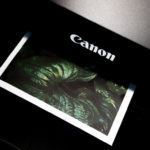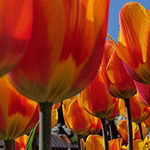Back in 1983, on Hawaii’s Kilauea Volcano, fissures started erupting intermittently along the middle part of the volcano’s East Rift Zone. No one knew it would be an ongoing eruption that still continues today. Now, the various lava flows bring in spectators of all sorts, including, of ant to witness and capture the incredible display. Jack Fusco recently took the opportunity to travel to Hawaii to catch the lava flow at its most spectacular—for the first time in three years, the flow was entering the ocean. And Fusco captured this beautiful timelapse of the exciting event:
A Bit of Background
Kilauea Volcano’s current lava flow is called the “61g” flow and began as an eruption in May 2016. Not long after, the lava began to enter the ocean at Kamokuna and the entry still continues. There is no threat to nearby communities.
Shooting the Timelapse
Fusco had the idea to capture the lava flow as it entered the ocean against the expansive night sky. He was joined on his journey by Mark Jacobs of MacPhun, who wrote a detailed account of their trip. The pair had to plan quickly and make a few adjustments as they battled bad weather and poor visibility.
The initial plan to capture the stars above the lava proved difficult, but Fusco and Jacobs persisted, making the long trek across lava fields, waiting patiently in rainy weather for the sky to open up, travelling to different locations for better views, and getting little sleep.
“What we discovered while there, was that conditions change minute by minute. Fortune truly favors the patient.”
Equipment and Settings
To get all the footage, Fusco used a combination of this gear:
- Cameras: Nikon D800E , Sony A7RII
- Sigma Lenses: 20mm f/1.4 DG HSM Art Lens, 24mm f/1.4 DG HSM Art Lens, 50mm f/1.4 DG HSM Art Lens, 50-100mm f/1.8 DC HSM Art Lens
- Tripod: Feisol CT-3442
- Timelapse Rig: Rhino EVO, Motion, ARC
- Software: Macphun Luminar, Adobe After Effects, Adobe Premiere
Like This Article?
Don't Miss The Next One!
Join over 100,000 photographers of all experience levels who receive our free photography tips and articles to stay current:








Leave a Reply